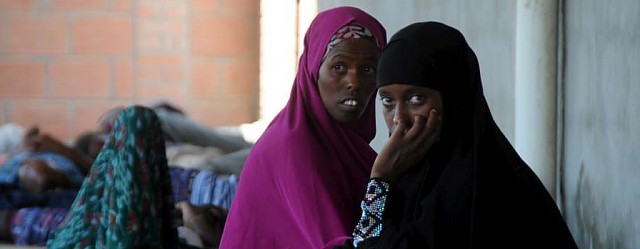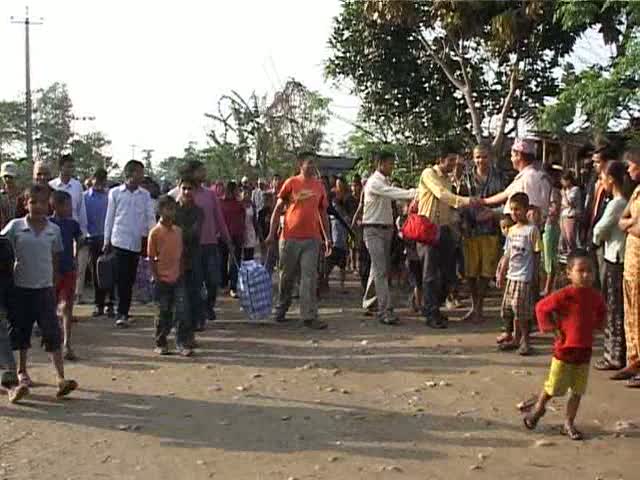Home > What We Do > Durable Solutions > Resettlement
Resettlement

A New Beginning in a Third Country
Many refugees cannot go home because of continued conflict, wars and persecution. Many also live in perilous situations or have specific needs that cannot be addressed in the country where they have sought protection. In such circumstances, UNHCR helps resettle refugees to a third country.
Resettlement is the transfer of refugees from an asylum country to another State that has agreed to admit them and ultimately grant them permanent settlement. UNHCR is mandated by its Statute and the UN General Assembly Resolutions to undertake resettlement as one of the three durable solutions. Resettlement is unique in that it is the only durable solution that involves the relocation of refugees from an asylum country to a third country. Of the 14.4 million refugees of concern to UNHCR around the world, less than one per cent is submitted for resettlement.
Only a small number of States take part in UNHCR's resettlement programme. The United States is the world's top resettlement country, while Australia, Canada and the Nordic countries also provide a sizeable number of places annually. In 2015, Italy became a new resettlement country and The Republic of Korea announced a three-year resettlement pilot programme, increasing the number of resettlement countries to 28.
Resettlement States provide the refugee with legal and physical protection, including access to civil, political, economic, social and cultural rights similar to those enjoyed by nationals.
In 2014, UNHCR submitted the files of some 103,890 refugees for consideration by resettlement countries. By nationality, the main beneficiaries of UNHCR-facilitated resettlement programmes were refugees from Syrian Arab Republic (21,154), The Democratic Republic of the Congo (18,828), Myanmar (15,170) and Iraq (11,778). In addition, 12.6 per cent of all submissions were women and girls at risk, the highest percentage of the last six years.
In the same year, over 73,000 individuals departed to resettlement countries with UNHCR's assistance. The largest number of resettled refugees left from Malaysia (10,976), followed by Turkey (8,944), Nepal (8,582), Thailand (7,170), Lebanon (6,285) and Kenya (4,913). Resettlement is a life-changing experience. It is both challenging and rewarding. Refugees are often resettled to a country where the society, language and culture are completely different and new to them.
Providing for their effective reception and integration is beneficial for both the resettled refugee and the receiving country. Governments and non-governmental organization partners provide services to facilitate integration, such as cultural orientation, language and vocational training, as well as programmes to promote access to education and employment.
Resettlement Handbook and Country Chapters
UNHCR's key reference tool on global resettlement policy and practice.
The Integration of Resettled Refugees
UNHCR guidance on the reception and integration of resettled refugees.
 Resettlement Policy and Practice
Resettlement Policy and Practice
UNHCR Executive Committee and Standing Committee documents on resettlement.
- Progress report on Resettlement June 2014
- Progress report on resettlement June 2012
- Progress report on resettlement May 2010
- Note on International Protection June 2009
- Progress Report on Resettlement June 2008
Resettlement Procedures
Flow chart of resettlement case identification and processing stages
 Projected Global Resettlement Needs
Projected Global Resettlement Needs
Provides an overview of progress and challenges, in addition to trends in refugee resettlement. It is prepared annually by UNHCR and introduces the projected global resettlement needs and capacity for the next year.
- UNHCR Projected Global Resettlement Needs 2016
- UNHCR Projected Global Resettlement Needs 2015
- UNHCR Projected Global Resettlement Needs 2014
- UNHCR Projected Global Resettlement Needs 2013
- UNHCR Projected Global Resettlement Needs 2012


